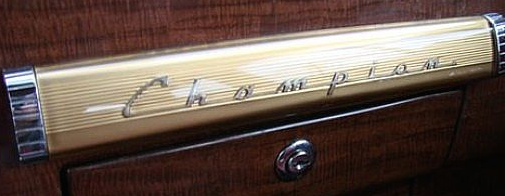
Are you ready to be in the running for success?
What’s the best feedback you could hope for about a website that you or your organisation has created? What’s the greatest outcome you could imagine from a document your organisation has published? And what’s the most satisfying result you could wish for for the writers in your organisation?
How about, ‘This site was our clear and unanimous winner! We hope plain-writing professionals and trainers will use it as a good example of plain writing principles’? Or what about, ‘What’s not to like?’ And even, ‘It’s hard to see how the writers could have helped the readers more’?
The responses we’ve listed above are all true-blue pieces of feedback from judges at last year’s Plain English Awards. What kind of feedback do you think you’d get?

Going the extra mile for readers
Every year the Plain English Awards honours those individuals and organisations who have gone the extra mile to get the best outcomes for their readers. The Awards are a public pat on the back for plain English champions. They help to raise the bar for clear communication.
To decide on our champions, independent panels of plain English experts and advocates judge entries and decide on who’s best in each category. This year the Awards has 13 different categories to enter (or to be entered in).
Are you ready to be in the running?
Entries for the 2018 Plain English Awards are open. You have 3 months to get your entries in before they close on Friday, 31 August.
Enter the 2018 Plain English Awards through our website.
Melissa Wardell May 29th, 2018
Posted In: 2018 Plain English Awards, Plain English Awards
Tags: 2018 Plain English Awards, clear communication, People's Choice, Social good

The decisions were tough but our shortlists are out. Photo by Samuel Scrimshaw on Unsplash
We’ve had plenty of positive and productive feedback about this year’s entries, with several judges commenting on how tough their decision-making has been. One judge summed up the dilemma perfectly: ‘This competition is stiff, and we will have to do some real work to sort out the best of the best.’
Take a look at this year’s shortlists
Entries on the shortlists are in no particular order. If we haven’t published a shortlist, it means we can’t let the cat out of the bag just yet. In some categories we had fewer entries that met the judges’ high standard.
Look out for the list of finalists on 19 October.
Nicola Welby September 28th, 2017
Posted In: Communications, Plain English Awards
Tags: 2017 Shortlists, clear communication, People's Choice, Plain English Awards

Time to celebrate! Photo by Tessa Rampersad on Unsplash
Why do we hold the annual Plain English Awards? What is it exactly that we’re trying to achieve?
Celebrating individuals and organisations that put the needs of their readers first
Everyone’s talking about it — busy people leading busy lives. Everyday people are regularly expected to read what can be critical information in a variety of mediums. But if the information they’re getting is written or presented in a way that makes it difficult to process, essential messages can get lost or muddled.
The Plain English Awards celebrate individuals and organisations that put the needs of their readers first. The Awards aim to:
- improve government and business documents so that all New Zealanders can understand them
- raise public awareness of the need for, and benefits of, plain English
- create a public preference for organisations that choose to communicate in plain English.
How seemingly small changes can make a big difference
Last year Wellington author and writing trainer Simon Hertnon was a judge in the People’s Choice section of the Plain English Awards. He and his panel members chose the winner of the Best People’s Choice — Best Plain English Communication and the People’s Choice — Worst ‘Brainstrain’ Communication.
Simon shared his impression of the two winning entries in his recent blog post about the critical influence of tone in a formal document. Suitable tone is a key component of any plain English document. And last year’s winner of the Best Plain English Communication Award offered a perfect example of how effective good tone can be. The winner of the Brainstrain Award, however, illustrated the alternative.
‘One winning entry illustrated why the default writing style of business and government — which I would characterise as formal, exhaustive, and impersonal — regularly fails to meet the needs of today’s information-overloaded reader,’ Simon says in his blog post.
‘The other winning entry provided an exemplar for what business and government writers can and should do to improve the quality and usefulness of their writing. That is, to employ a familiar, confident, no-nonsense tone.’
Time to get your entries in for the 2017 Awards
Have you submitted your Awards entries yet? Don’t miss out — enter now
Nicola Welby August 30th, 2017
Posted In: Plain English Awards
Tags: Brainstrain, People's Choice, Plain English Awards, Simon Hertnon
Media release: 5 November 2016
People’s Choice awards for the best and worst of business writing were announced at a gala dinner in Wellington, New Zealand on Saturday, 5 November.
The award for the Best Plain English Communication was taken out by well-known economic consultancy firm, the New Zealand Institute of Economic Research (NZIER) ahead of a number of strong contenders. NZIER’s report on international trade and agreements and sovereignty, ISDS and Sovereignty, was judged to be an outstanding example of clarity and reader focus.
The judges, Sue Chetwin of Consumer NZ and plain language experts Simon Hertnon and Ralph Brown, had high praise for the writers: ‘The NZIER report is a breath of fresh air to readers used to struggling through lengthy, jargon-filled advisory documents.
‘We wish this style of advisory writing were the norm rather than the exception. Decision makers across New Zealand would not only be better informed, they would have more time and energy available to think about what to do with the advice they receive.’
Judges also praised the communications nominated for the two other finalists, calling Business.govt.nz’s Employment Agreement Builder ‘an impressive online tool’ and Z Energy’s annual report ‘zesty’ and ‘refreshingly engaging’.
As always, the winner of the dreaded ‘Brainstrain’ Communication award was announced at the ceremony. This award reveals, in good humour, the document most notable for dumbfounding readers with gobbledygook.
A job description produced by the Parliamentary Service was the dubious winner. The judges said the job description was ‘…a classic example of the myth that a verbose and impersonal document is somehow more professional than a concise and engaging one.’
To their credit, the Parliamentary Service took the award on the chin. They issued a response by way of a tongue-in-cheek video, shown to guests at the ceremony, in which they welcomed winning such a ‘prestigious’ award.
It’s not all bad news. Along with the traditional bin filled with sour worms, the winner of the Brainstrain award gets two hours free consultancy with Write Limited to start transforming the offending document, or another like it, into plain English.
The People’s Choice awards, one segment of the usual yearly Plain English Awards, were held this year as part of the Clarity2016 conference, an international gathering of plain language and communications specialists, legal writers, and business people.
Awards founder Lynda Harris says, ‘We’ve seen the Awards shift attitudes and expectations about communication in the business, professional, and public sectors. Organisations recognise that plain language is no longer a nice-to-have; it’s crucial to their success.’
The full Plain English Awards programme will resume in 2017.
END
Get more information:
www.plainlanguageawards.org.nz
Lynda Harris, founder of the WriteMark Plain English Awards, Lynda@write.co.nz and 021 404990
Gregory Fortuin, Chair of the WriteMark Plain English Awards Trust, 021 465 254
www.clarity2016.org
Nicola Welby November 6th, 2016
Posted In: Communications
Tags: Brainstrain, Clarity2016, clear communication, People's Choice, Plain English Awards, plain language

Nominate the best and the worst for an award
We’re mixing it up in 2016 with a different event from previous years. Our major sponsor Write Limited is co-hosting Clarity2016 this year. So we’re focusing on the People’s Choice categories instead of holding the full range of Plain English Awards. Read on for three reasons to get involved.
You’ve always wanted to do something to help banish jargon and gobbledygook
When you nominate a document for the not-so-coveted ‘Brainstrain‘ Award, you’ll be helping to make a positive difference to the way organisations communicate. Almost without exception, organisations step up to ‘take it on the chin’ when nominated for the dreaded bin of sour worm lollies. With the public scrutiny they get from winning the Brainstrain category, they’re motivated to change.
You’ve found a wonderful example of clear communication that you’d like to share with the world
We love to celebrate the great work happening in so many organisations that are improving the way they communicate. Winning the award for People’s Choice Best Plain English Communication is a public pat on the back for New Zealand’s clearest communicators. Help them get the recognition they deserve.
You’ll be helping to promote New Zealand as a country that takes plain language seriously
The People’s Choice Awards will be announced at the international Clarity2016 conference’s gala dinner. Delegates are coming from around the world to this prestigious event, hosted for the first time here in Wellington.
Contact us if you’d like more information
Anne-Marie Chisnall August 21st, 2016
Posted In: Communications
Tags: Brainstrain, Clarity2016, clear communication, People's Choice, Plain English Awards, plain language






